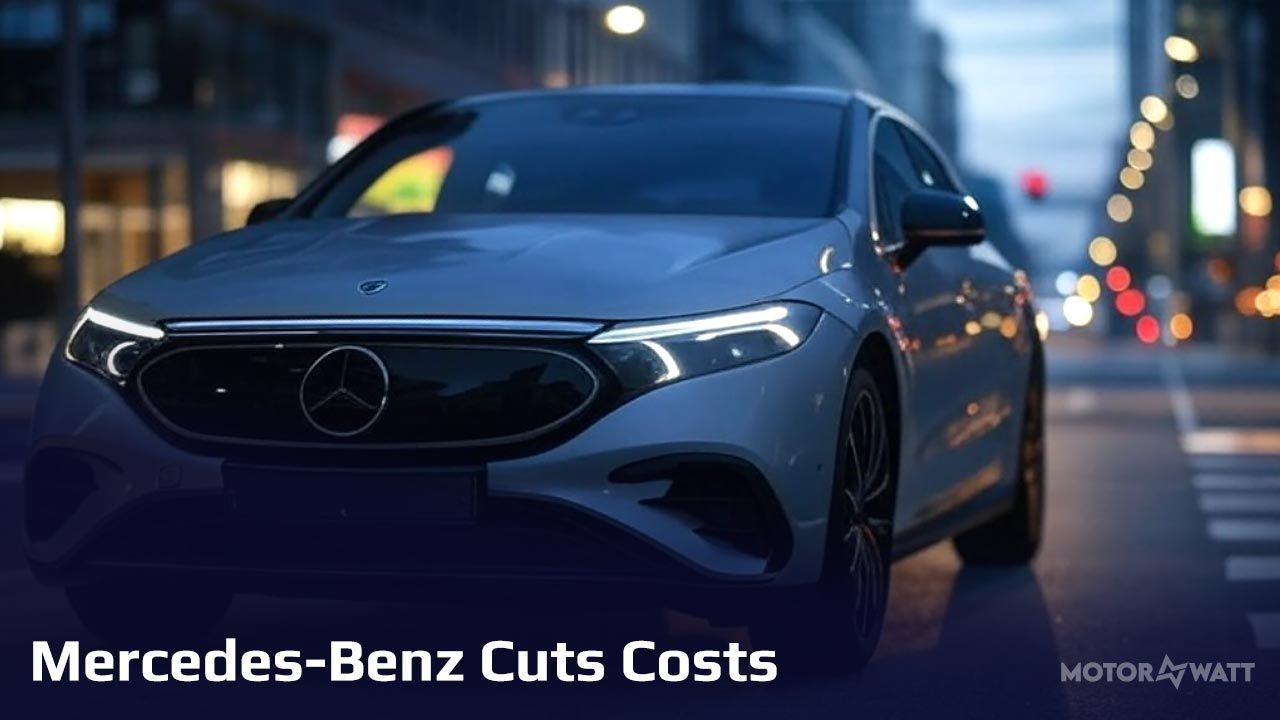Mercedes-Benz Cuts Costs Amid Electric Car Sales Slump
Share this article in Social Media:

Once again, Mercedes-Benz finds itself in a bit of a pickle, doesn't it? Just as we were all gearing up for an unprecedented electric future, the wheels seem to be coming off. Their profits have taken a nosedive, falling by nearly a third, and it’s all thanks to a slowdown in their electric car business. It's not just a solitary event for Mercedes-Benz; rather, this development paints a vivid picture of the broader challenges facing the entire electric vehicle market. And it's raising some serious questions about the sustainability of this electrifying transformation. Measures are being put in place, but the conversation about whether the EV revolution is sustainable rages on.
Mercedes-Benz's Financial Dilemma
Mercedes-Benz is wrestling with a dip in the profitability of its electric segment. On February 20, 2025, the luxury giant finds itself announcing a stringent cost-cutting move. The reason? A notable downturn in electric vehicle sales – shiny models and cutting-edge tech notwithstanding. The news outlines a significant strategic pivot as they work out a plan to tighten their belts. What does this mean for one of the industry's stalwarts? Well, it appears a reevaluation is in the cards.
- Profits have diminished by nearly 33%, a blow attributed mainly to the EV sector slowdown.
- Cost-cutting initiatives have been announced to efficiently weather the downturn storm.
- Speculation arises whether investments in EVs might be too hasty too soon.
- Market fluctuations and inconsistent demand are threatening the EV-driven future.
Challenges Stretching Beyond Mercedes-Benz
Mercedes-Benz is not alone in this predicament; tales of struggle are echoing through the corridors of the automobile world. Volkswagen and Porsche are two other prominent players reportedly reevaluating their electric ambitions. The buzz on social media and various news platforms reinforces that while electric vehicles remain the buzzword, challenges continue to loom. Could there be too much reliance on an all-electric optimism?
- Volkswagen reconsiders its all-electric journey, aligning thoughts with hybrid and combustion models.
- Porsche steps back from its exclusive EV aspirations, incorporating internal combustion engines.
- The broader automotive landscape is under the microscope as strategies shift.
- Conversations about the place of EVs amidst economic uncertainties increase.
The Broader Implications for the EV Market
The world has found itself fascinated by electric vehicles, but recent trends suggest a much-needed pause and a bit of reflection. Enthusiasm to electrify the roads is dampened by the financial and infrastructural hurdles that lie in wait. So, what are the broader impacts? Well, it's more than just a question of battery ranges and charging stations. The sustainability and scalability of such a massive transition are under scrutiny, and there's plenty to ponder.
- Debates on sustainability spark conversations about the future direction of electric vehicles.
- Potential policy impacts and financial implications resonate beyond the automakers.
- Shifts in demand drive a rethinking of electric-exclusive strategies.
- Global ambitions for EV growth face reality checks as market needs evolve.
Conclusion
The landscape of electric vehicles is undergoing a transformation, one driven on a road mired in both opportunity and roadblocks. Mercedes-Benz’s recent financial quandary underscores a set of broader challenges peppering the path of the electric transition. As more automakers reconsider their positions on this path to electrification, one key question remains: what balance will strike between looking forward and staying financially viable? It's a story that's far from over and one that will undoubtedly shape the future of mobility.

